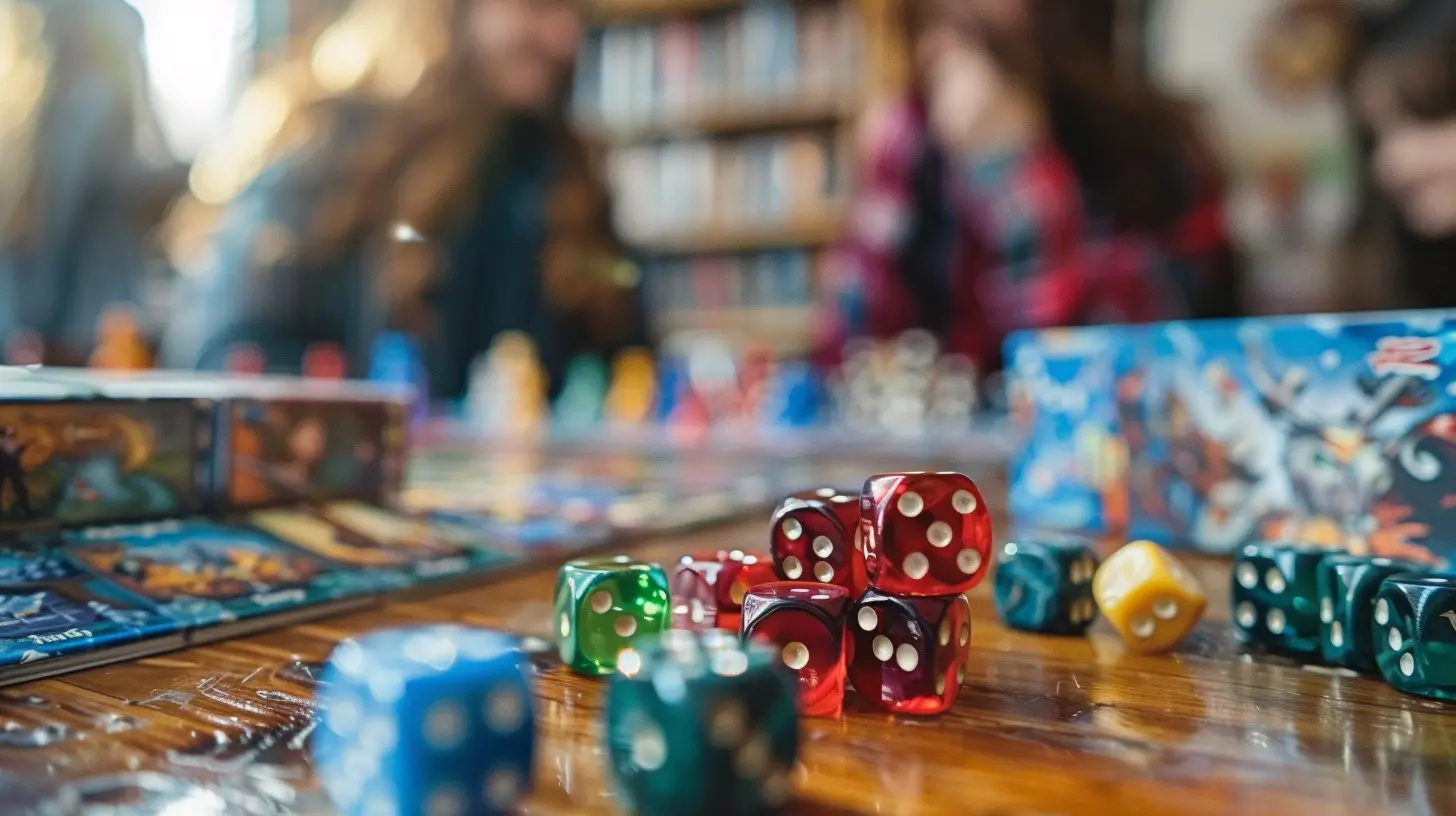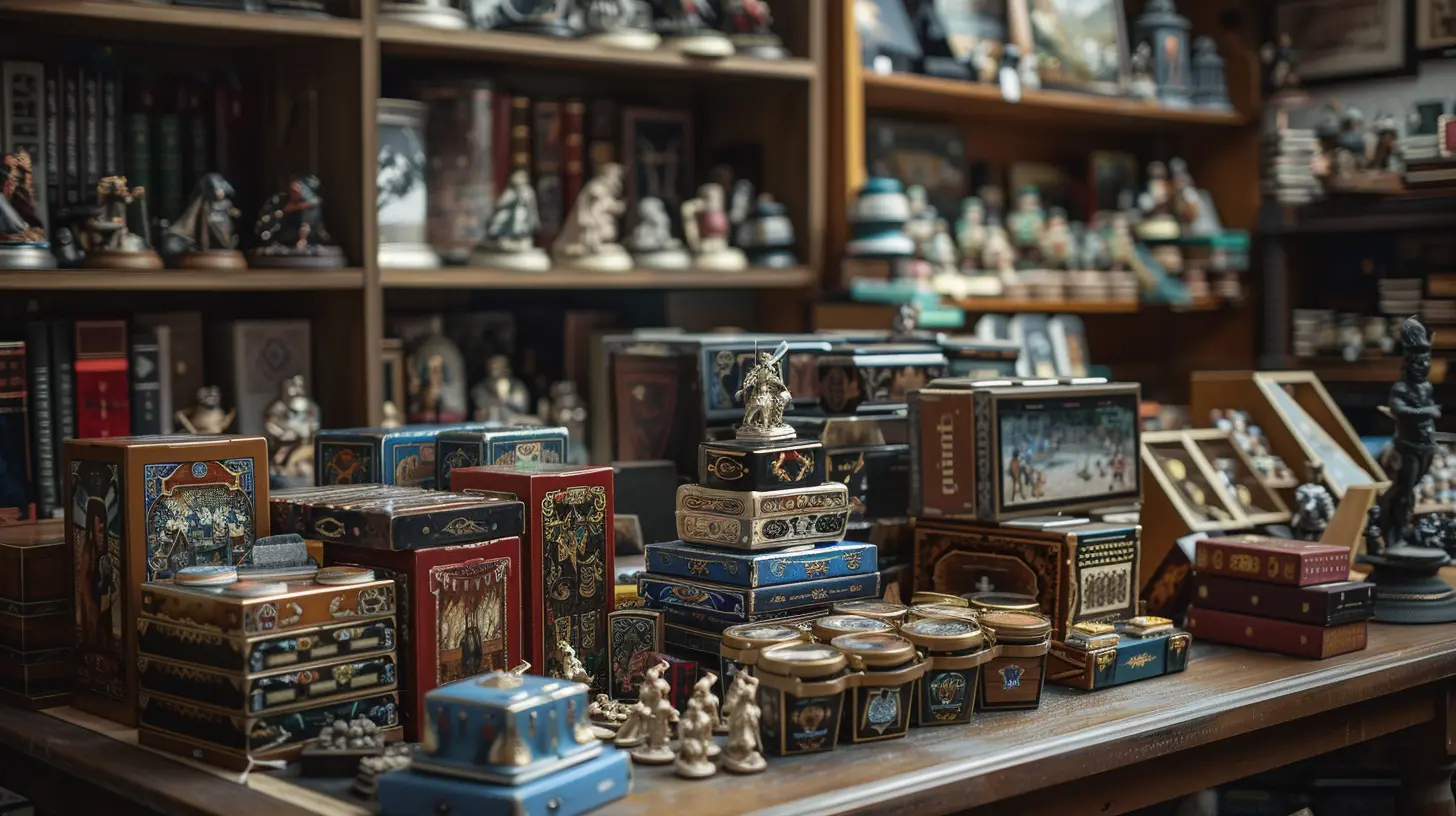How to Play Tabletop Games on a Tight Schedule
13 September 2025
Let’s be honest—life is busy. Between work, school, family, chores, and all those adult responsibilities nobody warned us about, it feels impossible to squeeze in time for tabletop gaming. You know, the satisfying clatter of dice, the strategy debates over coffee, and those moments of epic betrayal in board games that haunt friendships forever (in a good way, of course).
But here's the good news: even if your schedule looks like a cluttered dungeon map, you can still make time for tabletop games. It's not about cramming in marathon sessions every weekend—it's about being clever with your time, flexible with your games, and committed to just having fun.
So if your shelves are collecting dust or your RPG group hasn't met since the last leap year, this guide is your treasure map. Let’s break it down: how to play tabletop games on a tight schedule—without sacrificing the fun.
🎲 Why Tabletop Games Are Worth Your Time (Even When You’re Busy)
Before we dive into tactics, let’s address the elephant on the board—why even bother? When you're juggling a million things, isn’t it smarter to relax with a quick Netflix binge?Here’s the thing: tabletop games offer something most digital distractions can’t. They’re social, strategic, and genuinely satisfying. They sharpen your mind, strengthen friendships, and—let's face it—they're just way more fun than doomscrolling.
You don’t have to set aside five uninterrupted hours to get that joy, either. The trick is to change your mindset:
- Short playtime ≠ less fun
- Less frequent ≠ less meaningful
- A little planning = a whole lot of play
🧩 Step 1: Choose Games That Fit Your Schedule, Not the Other Way Around
A 6-hour RPG session sounds amazing... but probably isn’t in the cards on a Monday night. The key is picking the right games that work with your limited time, rather than forcing your schedule to match your game.🕒 Look for Shorter Playtimes
Start with games that are designed to be quick. Think small-box card games, micro-RPGs, or board games with a 30–60 minute playtime. Some great picks include:- Love Letter – Strategic in just 15 minutes
- Jaipur – Two-player card trading game
- Star Realms – Deck-building in under 20 minutes
- Cartographers – A chill roll-and-write that fits in an hour
- Fiasco – A one-session storytelling RPG
You can even explore one-shot RPGs that wrap up in a night. It's like a mini-campaign with a satisfying story arc—no months-long commitment needed.
🔁 Look for Episodic or Modular Games
Do you like campaign play but can’t commit every week? Try games that progress in chunks and let you pause between sessions. Cooperative legacy games or modular board games like:- Gloomhaven: Jaws of the Lion – Broken into manageable sessions
- Aeon’s End – Each session is self-contained
- Chronicles of Crime – One mystery at a time
This way, you can pick up right where you left off—no need to re-read the rulebook every time.
🧙♂️ Step 2: Appoint a Game Master of Logistics
Every gaming group needs a hero—not just to slay dragons, but to coordinate Google Calendars.Let’s face it: scheduling the game is half the battle. A dedicated “Game Master of Logistics” can make a world of difference. This isn’t the person running the game (unless they want to)—it’s the one who makes sure the group settles on a time and place.
Here are some tools and tricks to make scheduling painless:
- Use Doodle or When2Meet to gather availability
- Create a group chat for quick updates and confirmations
- Set recurring reminders (“First Friday of every month” is easier to commit to)
Consistency is the magic spell here—even if it’s just once a month.
🧑💻 Step 3: Embrace Technology (Yes, Even for Tabletop Games)
Can't meet in person? Don’t call the campaign off just yet. There’s a whole world of virtual tabletop options out there.💻 Use Online Platforms
From full-blown virtual tabletops to simple video calls, remote gaming is more accessible than ever:- Roll20 – Great for RPGs like D&D and Call of Cthulhu
- Tabletop Simulator – A sandbox with fan-made versions of nearly any game
- Board Game Arena – Play real-time or turn-based
- Discord or Zoom – For those who just love pen, paper, and roleplay
And the best part? No one has to commute, and your snack stash is just a room away.
📱 Try Asynchronous (Play-by-Post) Games
Can’t gather at the same time? Try email-based or forum roleplaying. You make moves when you have a minute, like a digital snail mail RPG. It’s slower but continuous—perfect for busy bees.🎯 Step 4: Set Realistic Session Goals (And Stick to Them)
One of the biggest time-wasters in gaming? Lack of structure. You spend half the night choosing a game, 20 minutes arguing over who plays what, and another 30 re-learning the rules.Let’s fix that.
🗂️ Prep Ahead
Pick your game before game night. Assign someone to refresh the rules, organize components, or even set it up before the crew arrives. This can shave 30-60 minutes off session chaos.⏱️ Use a Timer
This sounds simple, but it works. Set a game duration (e.g., “We’ll play from 7:30 to 9:00”) and wrap up when time’s up. Everyone can plan around it, and even if you didn’t finish, you played. That’s what counts.👨👩👧👦 Step 5: Involve the People You Already See
Want more game time without wrecking your calendar? Combine gaming with people and activities you’re already doing.🧩 Family Game Night
Got kids? Introduce board games into family time. Choose easy-to-learn titles that are fun for all ages, like:- Kingdomino
- Ticket to Ride
- Qwirkle
- Blokus
It’s quality bonding and gaming—two birds, one meeple.
🍕 Game + Dinner = Genius
Invite a friend over for pizza? Add a quick game before dessert. Hosting a dinner party? Set up a party game like Codenames or Dixit.Games aren’t just for “official” game nights—they can be the cherry on top of social time.
🛠️ Step 6: Build a “Go-To” Game Kit
If setting up feels like a hassle, it probably won’t happen. Create a grab-and-go game box—your “emergency fun kit.”What to Include:
- 2-3 short games you love- Dice, pens, notepads
- A rulebook cheat sheet
- A deck of playing cards (so many classic games!)
- Snacks—because of course
Having a ready-to-roll kit reduces friction and increases spontaneity. You could even keep one at work, in your car, or in your bag.
🧩 Step 7: Adjust Your Expectations & Be Okay With “Good Enough”
Here’s a truth bomb: not every session has to be legendary. Some nights you’ll only get in one round. Sometimes people will bail last-minute. And occasionally, the game just won’t click.That’s okay.
The goal isn’t perfection—it’s connection. If you laughed, rolled some dice, or told a silly in-character joke, you won. That’s a session well played.
💡 Mini Tips for Maximum Impact
Let’s wrap it up with a few rapid-fire tricks to make your tight schedule work in your favor:- Rotate who teaches the rules so one person isn’t overwhelmed
- Use house rules to shorten longer games
- Start earlier if you can spare 20 spare minutes before bedtime
- Play during lunch breaks—digital or in-person
- Solo play is still play– plenty of games have excellent solo modes
- Set up in advance if playing at home (nothing kills momentum like finding all the pieces)
🚀 You’ve Got This
If you’ve been sitting on your favorite games, waiting for that mythical “perfect time” to play... stop waiting. That moment may never come. But the good news is: you don’t need a full day to enjoy tabletop gaming.You just need a little creativity, the right games, and the willingness to dive in—even if it’s just for 30 minutes.
So dust off that game shelf, rally your group (even if it’s just one friend), and carve out those windows of joy. Because even on a tight schedule, tabletop games absolutely belong in your life.
Now go play something—you’ve earned it.
all images in this post were generated using AI tools
Category:
Tabletop GamesAuthor:

Stephanie Abbott
Discussion
rate this article
1 comments
Kai Bass
This article adeptly highlights the balance between time constraints and enjoyment in tabletop gaming, offering practical strategies that emphasize quality over quantity in gameplay experiences.
September 26, 2025 at 3:56 AM

Stephanie Abbott
Thank you for your insightful comment! I'm glad you found the article helpful in navigating the balance between time and enjoyment in tabletop gaming.


